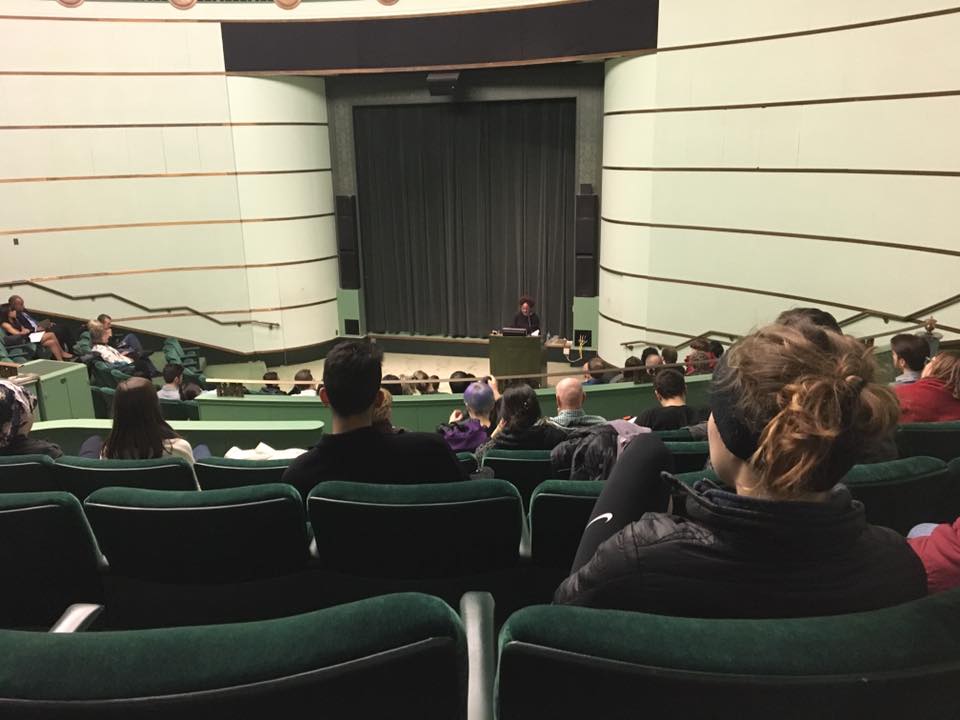The woman introducing Tracy K. Smith immediately piqued my interest regarding the poet. Quotes along the lines of “she changed my life,” “she has finally made sense of being a human being,” and she can “write about anything and turn it into unforgettable art” were prominent in the speech. At the end of it, I was on the edge of my seat waiting for Smith to begin her reading.
Tracy Smith read nine of her poems. In the few poetry readings I’ve attended in my life, I’ve noticed that all of the poets seem to read their work in the same mellow, soothing voice. In fact, the only time I’ve ever heard someone read with emotion was at a poetry slam event I attended last year. These vocal inflections are, as I have come to understand them, necessary to a poetry reading… but honestly, it took away from my experience at Smith’s reading. She had very powerful language in her poetry but the way she was performing them made them seem almost dull.
Not to say that her voice wasn’t a good reading voice. It was. She has an almost melodic method of intonation that added resonance and ambiance to her poems. For instance, the first poem Smith read was called “Unrest in Baton Rouge” after the photo by Jonathan Bachman. A prominent quote from this poem was “love is a language we all speak.” Smith’s calm intonation added to the image her language was trying to paint. Phrases such as “ink dark blood” really caught my attention.
In another of her poems, Smith referred to a sky that was a “dry, pitiless white.” If you were outside earlier today, this was a perfect method to describe our weather. Today wasn’t the dull, monochromatic gray associated with January skies in Michigan, but lively and unforgiving. I thought that was a beautiful part of the reading.
The third poem Smith read was an assignment from the National Portrait Gallery on an exhibition of photos coming out of the Civil War. She claimed she wanted to immerse herself in the lesser heard voices from that history. The poem was called “I Will Tell You the Truth About This, I Will Tell You All About It.” It was a long, found poem that she only read excerpts from. All of the poem was supposedly a letter addressed to President Lincoln regarding the struggle, among other things, of one not knowing one’s own age after having been freed from slavery.
Later on in the reading, Smith discussed how she was captivated by her seven-year-old daughter’s “fierce, wonderful will.” Her fifth poem talked about the particular things her daughter enjoyed (for example, cereal… but not the crunchy kind) and was overall a very sweet declaration of love. Her seventh poem was also about parenthood. Prominent quotes from that poem were that you “give all you can spare and then give more” and “we are shaped…by what we love.”
Smith was joking by the end of her reading, trying to find “something less depressing” to read. She settled on a poem about the “roiling infinity of space” that I thought was beautifully written. The language in the piece conveyed the vastness of the universe in a way I was able to comprehend (which, according to my astrobiology professor, is very difficult to do).
She closed with a political poem, as she referred to it. She had originally dreamed up the poem, saying that in the dream she was consciously trying to remember the poem to write down when she woke up. The original title was changed after this recent election as Smith attempted to acknowledge the anxiety the results of this November have brought to the world.


